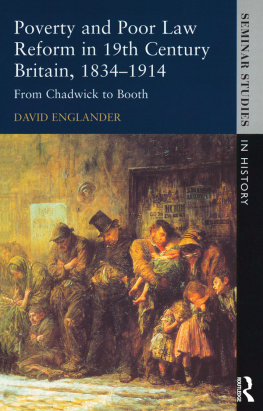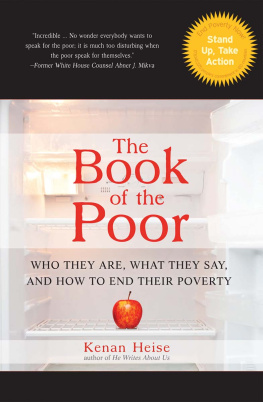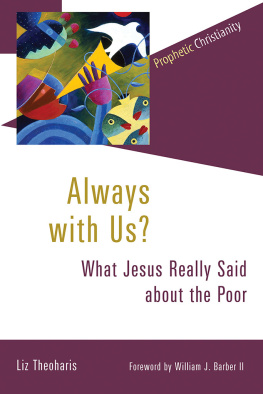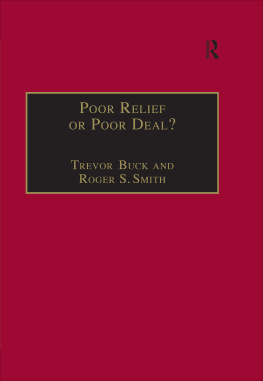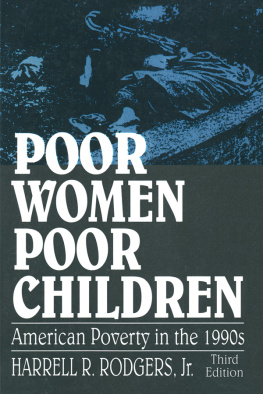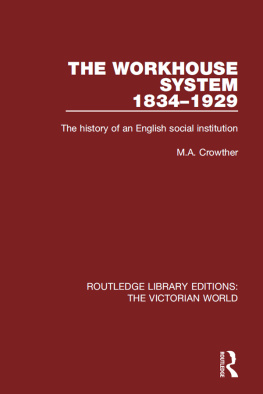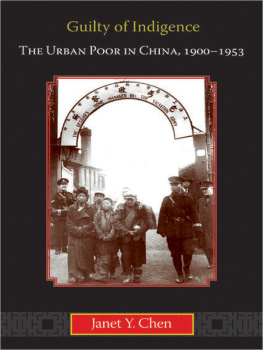First published 1998 by Pearson Education Limited
Published 2013 by Routledge
2 Park Square, Milton Park, Abingdon, Oxon OX14 4RN
711 Third Avenue, New York, NY 10017, USA
Routledge is an imprint of the Taylor & Francis Group, an informa business
Copyright 1998, Taylor & Francis.
The right of David Englander to be identified as author of this Work has been asserted by him in accordance with the Copyright, Designs and Patents Act 1988.
All rights reserved. No part of this book may be reprinted or reproduced or utilised in any form or by any electronic, mechanical, or other means, now known or hereafter invented, including photocopying and recording, or in any information storage or retrieval system, without permission in writing from the publishers.
Notices
Knowledge and best practice in this field are constantly changing. As new research and experience broaden our understanding, changes in research methods, professional practices, or medical treatment may become necessary.
Practitioners and researchers must always rely on their own experience and knowledge in evaluating and using any information, methods, compounds, or experiments described herein. In using such information or methods they should be mindful of their own safety and the safety of others, including parties for whom they have a professional responsibility.
To the fullest extent of the law, neither the Publisher nor the authors, contributors, or editors, assume any liability for any injury and/or damage to persons or property as a matter of products liability, negligence or otherwise, or from any use or operation of any methods, products, instructions, or ideas contained in the material herein.
ISBN 13: 978-0-582-31554-9 (pbk)
British Library Cataloguing-in-Publication Data
A catalogue record for this book is available from the British Library
Library of Congress Cataloging-in-Publication Data
Englander, David, 1949
Poverty and poor law reform in Britain : From Chadwick to Booth, 1834-1914 / David Englander.
p. cm. -- (Seminar studies in history)
Includes bibliographical references and index.
ISBN 0-582-31554-9
1. Poor--Great Britain--History. 2. Poor laws--Great Britain- -History. 3.Public welfare--Great Britain--History. 4. Poverty--Great Britain--History. I. Title. II. Series.
HV245.E54 1998
362.510941--dc21 | 97-32650
CIP |
Such is the pace of historical enquiry in the modern world that there is an ever-widening gap between the specialist article or monograph, incorporating the results of current research, and general surveys, which inevitably become out of date. Seminar Studies in History are designed to bridge this gap. The series was founded by Patrick Richardson in 1966 and his aim was to cover major themes in British, European and World history. Between 1980 and 1996 Roger Lockyer continued his work, before handing the editorship over to Clive Emsley and Gordon Martel. Clive Emsley is Professor of History at the Open University, while Gordon Martel is Professor of International History at the University of Northern British Columbia, Canada and Senior Research Fellow at De Montfort University.
All the books are written by experts in their field who are not only familiar with the latest research but have often contributed to it. They are frequently revised, in order to take account of new information and interpretations. They provide a selection of documents to illustrate major themes and provoke discussion, and also a guide to further reading. The aim of Seminar Studies is to clarify complex issues without over-simplifying them, and to stimulate readers into deepening their knowledge and understanding of major themes and topics.
Readers should note that numbers in square brackets [] refers readers to the corresponding item in the Documents section which follows the main text. Words which are defined in the Glossary are asterisked at first occurrence. There is also a guide to Main Characters and these are also asterisked at first occurrence in the text.
Poverty and Poor Law Reform has been fun to write and a rather more pleasurable experience than the subject matter might seem to suggest. Much of it comes from the range, depth, diversity and erudition of the scholarship on which I have drawn. Anyone who enters this field will be amazed, delighted and inspired by the quality and originality of the studies published thus far. It is not, however, the sole source of indebtedness. Colleagues have been no less encouraging. I am grateful to Clive Emsley who first suggested the project and has been supportive throughout. I have benefited from conversations with Tom Caldwell, who knows more about the history of the Royal Statistical Society than anyone has a right to, and from Richard Thompson whose knowledge of poor law history is stupendous. Rosemary ODay not only read and commented on the typescript of this study, but generously allowed me to consult the manuscript of her forthcoming book, Katharine Buildings, East Smith field, 18801914. I have also benefited from the inquisitiveness of our young sons, Daniel and Matthew, to whom this volume is dedicated.
David Englander
Charles Booth Centre
The Open University

The Poor Law Amendment Act of 1834 was the single most important piece of social legislation ever enacted. Its radical redefinition of the principles of social policy fixed the parameters for all subsequent debate and discussion. Its organizing assumptions cast a continuing shadow over attitudes towards the nature of social obligation and dependency. Its imagery, stamped so firmly on our collective memory, invigorates research, sustains controversy and underscores the continuing relevance of historical understanding in our everyday lives. The Poor Law touched almost every aspect of life and labour in Victorian Britain. Employment and wages, housing and rents, migration and settlement, medicine, marriage, charity and education all were influenced in one way or another. Relations between rich and poor were shaped by the Poor Law and local party politics energized by the controversies that surrounded it. Not surprisingly, the New Poor Law remains difficult to characterize. Was it progressive or reactionary, malevolent or misguided? Opinions differ. For some scholars the reformed Poor Law represents the triumph of ideology over reality; for others the victory of common sense over chaos. Poor relief also raises issues respecting continuity and innovation in social theory and social practice. How far was the reformed Poor Law an extension of the unreformed Poor Law and to what extent did it constitute a radical break with the past? Other issues which excite debate include the transition from pauperism to poverty and the redefinition of the social question in the late-nineteenth century. Of interest, too, is the significance of the Poor Law for the long-term development of social policy. Questions also arise concerning the nature of poor law studies. Is it, in fact, possible to write a satisfactory poor law history? Must we make do with institutional accounts from which dependency and the pauper experience are forever excluded by the importance assigned to the policy-making process? These and related issues are considered in the account presented below.

